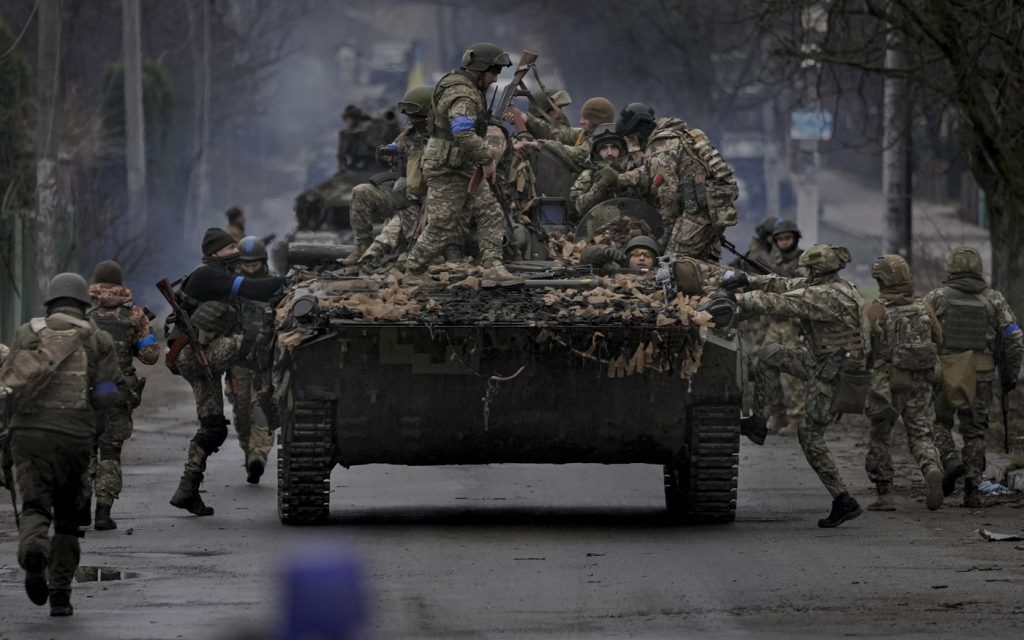The recent weekend saw significant diplomatic developments regarding the war in Ukraine. On Saturday, leaders from Europe gathered in Kyiv with President Volodymyr Zelenskyy, aiming to intensify pressure on Russian President Vladimir Putin for a ceasefire. Shortly after midnight, Putin resurfaced in Moscow to unveil a proposal for peace talks scheduled to take place in Istanbul, Turkey.
If a meeting were to occur between both Putin and Zelenskyy, it would mark the first direct engagement in the three-year-long conflict. The journey towards a resolution has been tumultuous, marked by a series of crucial events since Russia's invasion of Ukraine began on February 24, 2022.
On February 28, 2022, delegations from Ukraine and Russia convened for the first time in Belarus following the invasion. Although subsequent talks continued for two weeks, they yielded limited outcomes aside from the establishment of humanitarian corridors for civilians. By March 21, Zelenskyy had expressed a willingness to engage in direct talks with Putin, a request that was initially dismissed by Russian Foreign Minister Sergey Lavrov.
The dynamics shifted on March 29, 2022, when discussions commenced in Istanbul, where Russia indicated a readiness to "fundamentally cut back" military activity near Kyiv and Chernihiv. Ukraine, in return, suggested it would consider a neutral status if security assurances were provided by other nations.
However, the discussion soon encountered setbacks. On April 7, Lavrov rejected a Ukrainian peace proposal as "unacceptable," arguing that Ukraine had reneged on an agreement concerning Crimea, which Russia had illegally annexed back in 2014. The subsequent months saw intermittent dialogue, including a visit from U.N. Secretary-General António Guterres to Russia in late April 2022 and a grain export agreement in July facilitated by Turkey and the U.N.
Zelenskyy's address to the U.N. General Assembly on September 22, 2022, laid out five "nonnegotiable" conditions for peace, including accountability for Russia's actions. This culminated in the illegal annexation by Russia on September 30, 2022, of the regions of Donetsk, Luhansk, Zaporizhzhia, and Kherson, after which Ukraine declared negotiations with Putin "impossible."
Through 2023, discussions continued sporadically. In June, officials from 15 countries, including the U.S. and European nations, met in Copenhagen to deliberate on Zelenskyy's peace plan. Meanwhile, in August, discussions in Saudi Arabia attracted delegates from 40 countries, although Russia was notably absent. The focus on peace talks persisted into October 2023, with 65 countries convening in Malta, disregarding Russian participation.
The timeline advanced into 2024 with a meeting of 92 nations in Nidwalden, Switzerland, to tackle Ukraine's peace strategy, but agreement remained elusive. Meanwhile, U.S. President-elect Donald Trump’s discussions with Zelenskyy and European leaders in December 2024 appeared to pivot towards fostering negotiations. A phone call between Trump and Putin in February 2025 indicated a potential thaw in relations, leading to further meetings and discussions on resolving the conflict.
As of May 2025, the situation remained fraught with tension. A ceasefire proposed in a U.S. plan was agreed upon by Kyiv, but Putin's subsequent rejection highlighted ongoing disagreements. Despite similar proposals for temporary halts on hostilities and public appeals for truce by European leaders, progress toward a lasting peace agreement remained complex and fraught with challenges.
The diplomatic landscape is in a constantly evolving state as stakeholders navigate the intricate dynamics of negotiations aimed at ending the war in Ukraine. The high-stakes interaction between world leaders and the persistent efforts for peace underscore the complexities involved in achieving a resolution to a conflict that has captivated international attention.











